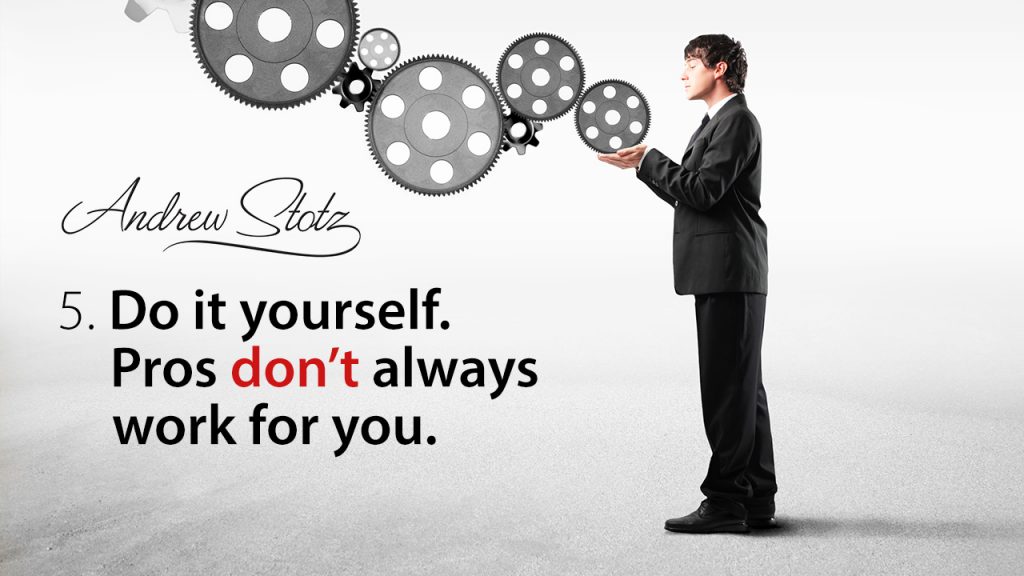Principle 5: Do it yourself

[dropcap background=”” color=”” circle=”0″]P[/dropcap]ros don’t always work for you…
Internationally acclaimed financial strategist Andrew Stotz encourages people who have time, knowledge and interest to handle their own assets rather than paying fund managers hefty fees to do it for them. After all, fund managers are well-educated people who need to be paid in accordance with their experience, credentials and required resources (like going on a business trip to visit potential companies for your investments, and so forth).
Many of these fund managers are just like you: hard-working individuals who have families to support, dreams to finance and bills to pay. It is not unethical for them to gain commissions from your trades and financial products. But there are advisors that will employ financial strategies ill-suited to your goals, using your invested money, because those strategies make them the most money. Some of them work for themselves.
Mr. Stotz also said that in the world of finance, it is a common occurrence that “the more you pay, the less you receive.” Whether you believe in his claim or not, it is still important to pay attention.
In fact, he said that since the year 1968, academic studies have shown that the “average fund manager does not beat the market.” A great point made by the CFA Society Thailand’s president is that fees outpace the good returns of a fund. Since it has been mentioned in the previous principle that investors must only expect stock market returns of 8%–10% per year, fund managers ideally should create a higher return for you than 10%. Of course, this does sometimes happen. In any given quarter, there are fund managers whose results, when picking stocks and deciding when to hold, buy or sell, beat those of the market. But the more common scenario is that their active management decisions yield a return less than or equal to that of the market, according to Mr. Stotz. For an investor to break even assuming a 10% market return and 3% management fees, his fund manager must be able to produce a 13% gain for that investor’s portfolio results to match the market’s 10% return. Imagine how hard that can be to do consistently.
Eliminating the middleman in almost all financial transactions is cost-efficient. But when high fees are coupled with individual investors who have not done their research, tons of money can be lost. Gather all the information you need for a particular investment if you want to cut management costs and other sales loads. Don’t go to war without your own weapons! Otherwise, let your financial advisor shield you for a price—a price their education and experience deserve.
Danielle covered the three-day university tour of Andrew Stotz in the Philippines from October 2 to 4, 2014. She will discuss each of Andrew’s 12 investment principles from her perspective. All articles will be posted here on www.andrewstotz.com.

